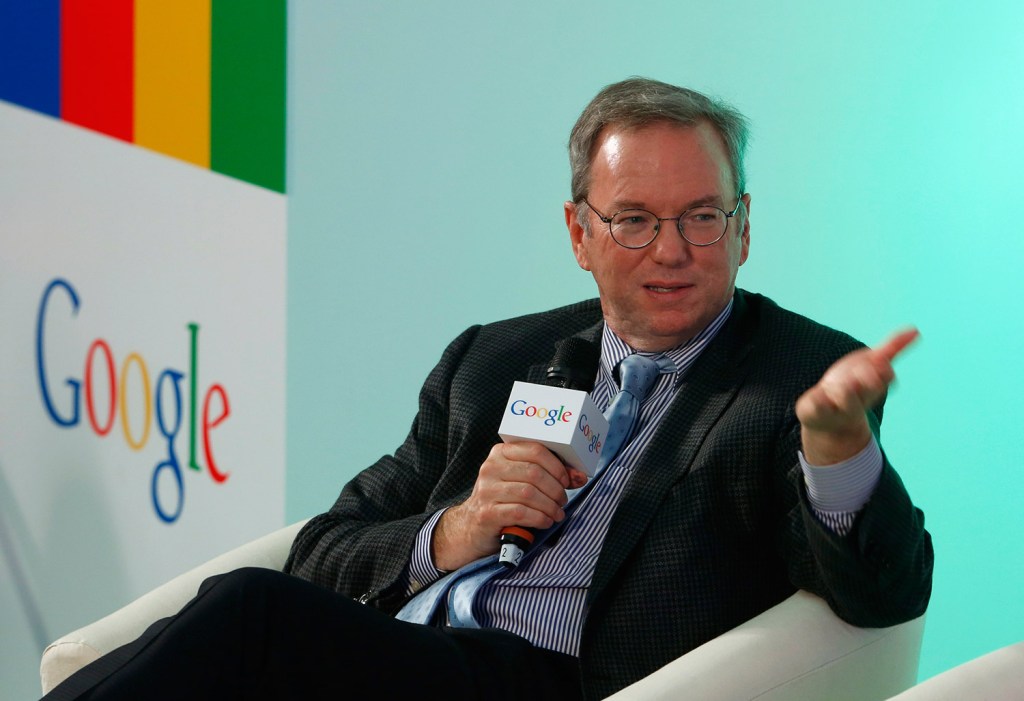We have more information than ever. I know this because researchers have conducted studies and published their findings, which I looked up on the Internet in between writing the last sentence and this one.
According to Google CEO Eric Schmidt, we produce more information every two days than humanity produced between 2003 and the dawn of time. He said that in 2010, so now we probably go from the Sumarian Gilgamesh epic to Kim Kardashian’s sex tape every day before noon.
I grew up in an era when all the news came from three television stations, one local newspaper and the AM radio. Everybody I knew got one of two magazines, Time or Newsweek, which represented diversity of opinion.
You could not even begin to count the number of information sources that bombard us now, from the moment an email ping wakes us up to the time we pass out playing with our iPhones.
So, with all this information, why do we seem so dumb?
I came up with this question when a Facebook “friend” posted an article with a catchy headline “The top 8 ‘conspiracy theories’ that are turning out to be true,” published on a website called eatlocalgrown.com.
I’m generally anti-conspiracy theory. I know how hard it is for people to work together and keep a secret, so when I see something I can’t explain, I tend to chalk it up to incompetence and not an incredibly smoothly executed caper. But I’m also interested in hearing what people I disagree with think, so I was willing to see which historical realities people like me had brushed off in the past as nuttiness. Boy, was I surprised.
Apparently 9/11 has been proven to have been a hoax. “According to the latest polls,” the website says, nearly half of the American population rejects the official explanation that terrorists flew hijacked planes into the World Trade Center towers and the Pentagon.
Most people also believe that there is intelligent life outside our world and a quarter of Americans believe that extraterrestrial visitors have been coming to Earth for a long time.
The website notes that a lot of people are also convinced that the cloud-like trails you see in the sky are not steam left behind by jet engines, but are chemicals secretly sprayed into atmosphere in a misguided attempt to control the weather.
“People are not stupid,” the list writer asserts. “Why is it so many people think this way?”
People may not be stupid, but they have been known to think some really stupid things. And it appears that providing them with information doesn’t make it better. It may even make things worse.
With too much information to comprehend, we automatically start eliminating what doesn’t fit with our notions of how the world works. We start with a gut reaction and fill in around it.
It’s what psychologists call “confirmation bias,” and we all do it all the time.
If an idea looks like something that we have seen before, we look for reasons to believe it or not believe it. And when we look for something, we usually find it. The order in which we learn information affects our opinions, and who we hear it from also matters. If we like and approve of someone, we tend to like everything about them. Psychologists call it the “halo effect.”
When the president of Iceland talks about using Arctic shipping routes opened up by the melting ice caps to trade with China, liberals nod approvingly. When Gov. LePage says exactly the same thing, we howl. Doesn’t he know that global warming is bad?
Liberal or conservative, the constant is overconfidence in our gut reactions and our willingness to build elaborate rational structures to support them even after conflicting information comes along. And while you can usually see other people make these mistakes, it’s really hard to see your own. The more often we make them, the more right we feel.
That’s why even when we have more information than ever, we don’t seem to be getting any smarter.
I expect that I will get more email than I can handle this week from people who think aliens are in our midst, chemtrails are part of secret government science gone wrong and 9/11 was an inside job. They are welcome to try, but they shouldn’t be too optimistic about winning me over.
I’m probably not getting past the gut feeling that they are a bunch of kooks.
Greg Kesich is the editorial page editor. He can be contacted at 791-6481 or at:
gkesich@pressherald.com
Twitter: gregkesich
Copy the Story LinkSend questions/comments to the editors.




Success. Please wait for the page to reload. If the page does not reload within 5 seconds, please refresh the page.
Enter your email and password to access comments.
Hi, to comment on stories you must . This profile is in addition to your subscription and website login.
Already have a commenting profile? .
Invalid username/password.
Please check your email to confirm and complete your registration.
Only subscribers are eligible to post comments. Please subscribe or login first for digital access. Here’s why.
Use the form below to reset your password. When you've submitted your account email, we will send an email with a reset code.